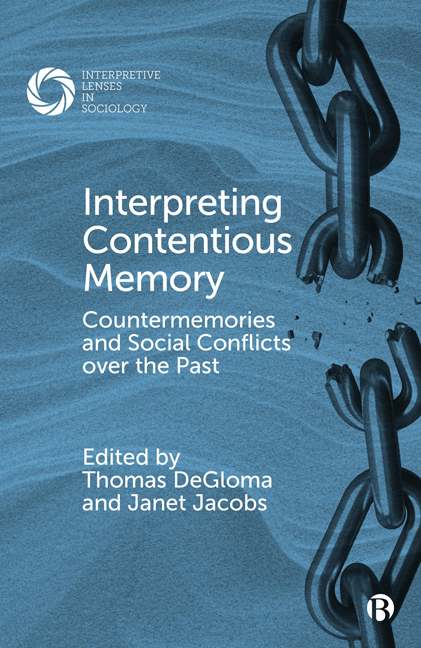Book contents
- Frontmatter
- Contents
- Series Editors’ Preface: Interpretive Lenses in Sociology – On the Multidimensional Foundations of Meaning in Social Life
- Notes on Contributors
- Acknowledgments
- 1 Introduction: Interpreting Contentious Memories and Conflicts over the Past
- PART I Interpreting Memories in the Social Dynamics of Contention
- PART II Racism, Exclusion, and Mnemonic Conflict
- PART III Genocide, Memory, and the Historicizing of Trauma
- Index
12 - How Difficult Pasts Complicate the Present: Comparative Analysis of the Genocides in Western Armenia and Rwanda
Published online by Cambridge University Press: 20 January 2024
- Frontmatter
- Contents
- Series Editors’ Preface: Interpretive Lenses in Sociology – On the Multidimensional Foundations of Meaning in Social Life
- Notes on Contributors
- Acknowledgments
- 1 Introduction: Interpreting Contentious Memories and Conflicts over the Past
- PART I Interpreting Memories in the Social Dynamics of Contention
- PART II Racism, Exclusion, and Mnemonic Conflict
- PART III Genocide, Memory, and the Historicizing of Trauma
- Index
Summary
Introduction
The 20th century was marked by collective violence throughout the world. Two cases cumulating within “the Age of Genocide,” the 1915 Armenian Genocide and the 1994 Genocide Against the Tutsi, are rarely analyzed together, even though such a comparative analysis reveals patterns in the social architecture of collective violence.1 In this chapter, we focus on identifying such repertoires of violence and power that emerge through systemic critical comparison by juxtaposing the two genocides on three empirical parameters of genocide memory production, specifically in terms of the (i) concept (of genocide); (ii) agency (of social actors involved in genocide); and (iii) narration (of the larger context of genocide, especially in the post-genocidal phase). This critical comparison captures the process of violence unfolding from the origins through to today by assessing the relevance of time and space across the three parameters. Such critical comparison reveals two significant insights regarding the post-genocidal phase. First, the temporal and spatial boundaries of genocide expand beyond the initial collective physical destruction in the short-term to a long-term process of boundary making around trust, accountability, memory-making, and forgetting. Second, contentiousness located in the post-genocide phase actually originates throughout the process of genocide, only to develop into a contentious narrative thereafter.
In summary then, through our interpretive lens, we argue genocidal processes are contentious because of the inherent difficulties in the initial formulation, execution, and narration of genocide. In doing so, we hopefully provide some insight in response to Hinton's (2012) question: “Why, we need to ask, are certain cases forgotten, remembered, recognized, or even intentionally hidden or written out of history?” To address the contentious memories of genocide, we develop an expanded historical lens to show how multiple factors influence the definition of genocidal acts and processes as they unfold through time.
In what follows, we lay out how our interpretive lens shifts the analysis of genocide as a singular act to a relational process pertaining to the concept of genocide, the agency of social actors, and the temporal and spatial historical context. In the second half of the chapter, we apply our cases to illustrate how contentious memory is integral throughout the process of genocide.
Information
- Type
- Chapter
- Information
- Interpreting Contentious MemoryCountermemories and Social Conflicts over the Past, pp. 236 - 257Publisher: Bristol University PressPrint publication year: 2023
